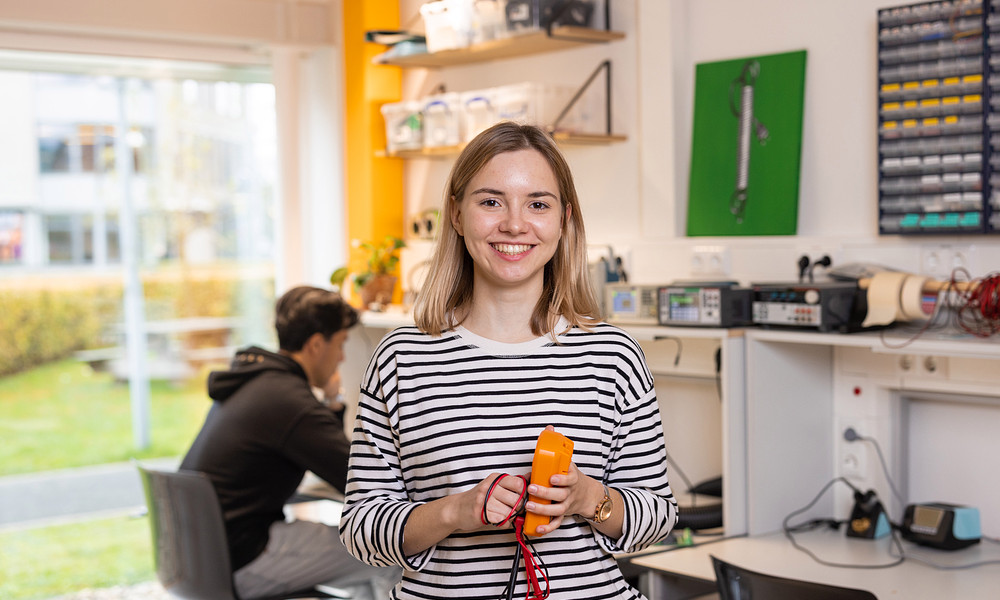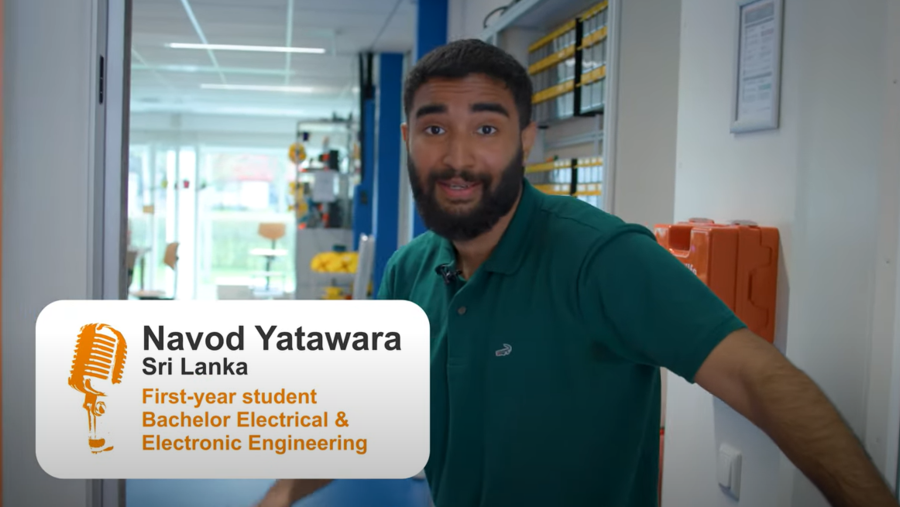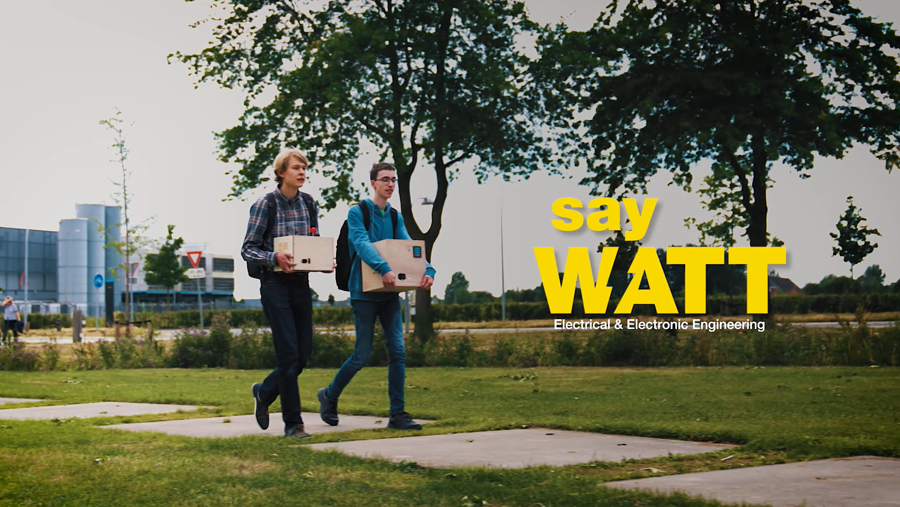Shape the future with smart technology
Check whether you qualify- Bachelor
- Full-time
- 4 years
Shape the future with smart technology
Check whether you qualify
Do you want to make the world around you smarter? Do you want to ensure that your house knows when to open the curtains or turn on the heating? Smart systems are at the heart of technological progress. Smart cities, smart mobility, smart industry, smartphones, smart watches. With the Sensors & Smart Systems major of the Electrical Engineering programme, you shape the future of everything around you. From healthcare to sports. From (sustainable) energy to industry. Here’s what you will find with us:
✔ Programme developed jointly with the business community ✔Passionate, driven groups ✔ Great job prospects
You have a lot of choice within our Electrical Engineering programme. In the first two years you can add your own flavour to your studies by choosing a number of elective subjects, and you lay the foundation for your specialisation in your third year. In addition to the Sensors & Smart Systems specialisation, you can also opt for an Energy & Power Electronics or a Mechatronics specialisation. Whether you want to work with smart electronics, technology for the energy transition, or moving systems – you will find the programme at Hanze!
What makes studying at Hanze UAS unique is that you will work on projects for real clients and contribute to concrete solutions for current issues impacting society. Below, you can find some examples of projects our students engage in.
The Sensors & Smart Systems specialisation is one of the three specialisations of the Electrical Engineering programme. The Sensors & Smart Systems specialisation focuses on designing, creating and programming smart systems with sensors. You shape the future of everything around you. From healthcare to sports. From (sustainable) energy to industry.
During your programme you will develop knowledge and skills in everything in the field of electrical engineering. For example, you will work on robotics, programming, control systems and data communication. You will immediately start working on assignments from real clients in the field and have plenty of room to organise your own studies.


You will get to know the versatile, fascinating and broad world of Electrical and Electronic Engineering. You will do this with all the first year students of Electrical and Electronic Engineering. You will take your first steps in designing and developing electrical engineering products. In addition, you do various practicals.
In project assignments you and your fellow students tackle an interesting challenge, in which you immediately put what you have learned into practice. For example, you will learn to design and build a stress meter or a miniature energy system.
Have you discovered in year 1 that you would prefer to follow a different direction in Electrical and Electronic Engineering (Mechatronics or Electronics)? No problem! You can simply switch.
In year two you will study the major you have chosen. Have you chosen Sensor Technology? Then you will dive into the world of innovation and sensor applications. You will learn how sensors can be used to make appliances, machines and buildings smarter. You will often be busy in the workshops with practicals and apply all the knowledge and skills you have acquired to various projects in the field.
In year three you deepen your knowledge further with a minor and an internship. You decide how you fill the space. You can take a minor at Hanze UAS, another university of applied sciences in the Netherlands and you can go abroad! During the internship you put your knowledge and skills into practice at an (inter)national company or organization. You choose which company that is.
In year four you will complete the programme with an in-depth minor, such as Biomedical Engineering, Industrial Automation, Internet of Things, Technology to Innovate or Flexible Energy TechnologyYou will also carry out a graduation assignment at an (inter)national company or organization. With your graduation assignment you will show that you are the beginning electrical engineer that the field is so eager for!
After your Bachelor's degree in Electrical and Electronic Engineering you can continue studying for the title Master of Science by following a Master's programme. You can choose to follow a transfer master at the Hanze University of Applied Sciences, such as our Master Smart Systems Engineering. You can also continue your studies at research university, for example the University of Groningen.
Students of the Electrical Engineering programme who continue their studies often choose:
After the Bachelor's degree in Electrical and Electronic Engineering you will be awarded a Bachelor of Science degree and you will be able to work for companies and (research) institutions. 89% of graduates find their first job within a year. A large part of the alumni stays employed in the region, a small part is working abroad. Examples of positions are:

Enrollment advisor